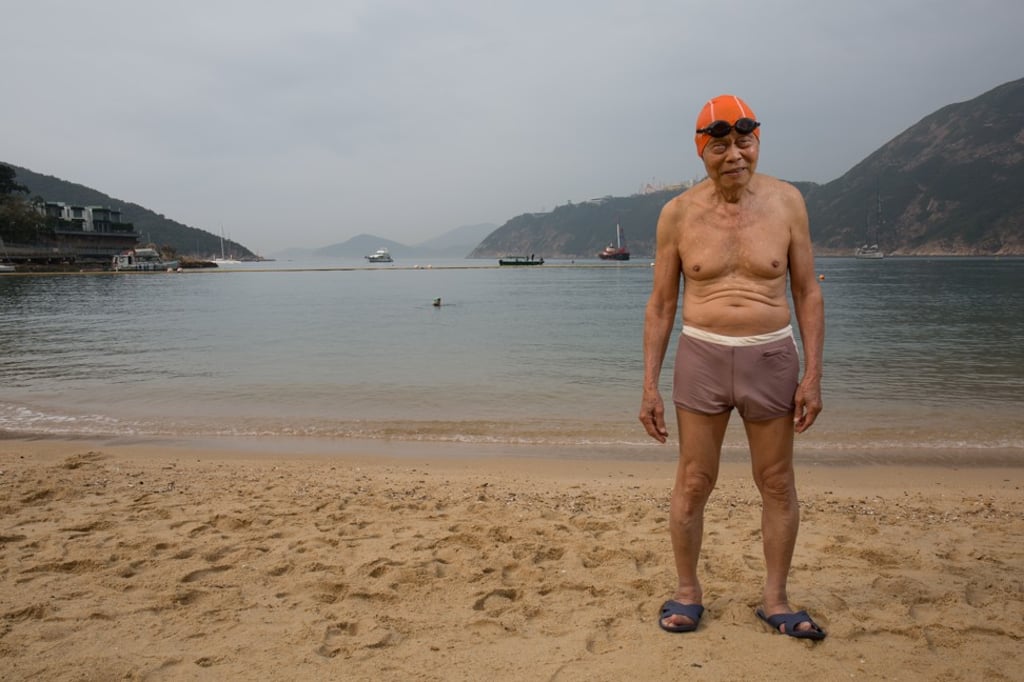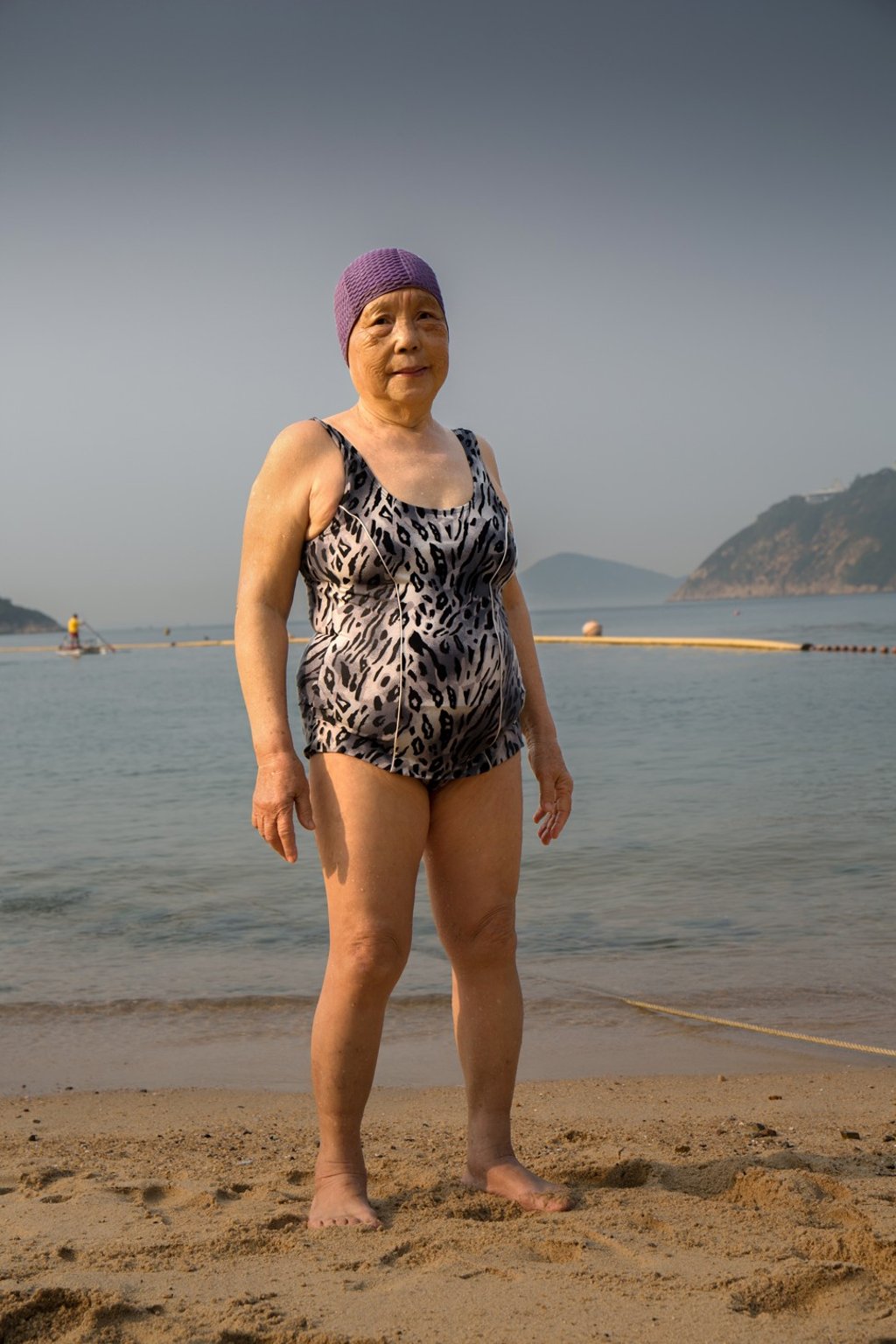Swimming every day: age is no barrier for the regulars at Hong Kong’s Deep Water Bay
- They all come from different backgrounds, but they have one thing in common – come rain or shine, they will not miss a day of swimming
- It’s all about the camaraderie


Mr Yiu, 85, is a retired architectural designer. He has come to Deep Water Bay every day at 8am for 50 years. He remembers a tragedy 20 or 30 years ago, when a young woman was in the water when lightning struck: “Her body turned black in a flash. It was all too quick to help.”
Yiu likes playing the harmonica and singing with some of the 100 or so friends he says he has met over the years in Deep Water Bay. The coldest day he can recall was in 1964. “It was about 3 degrees Celsius. I remember shivering all day after that swim.”

Ms Chan, 82, has just recovered from a knee injury. She says she doesn’t bother swimming: “I just float.” Originally from Chaozhou, in Guangdong province, she moved to Hong Kong when she was eight. She started working in a factory on Hong Kong Island when she was about 11 and lived in Kowloon. She used to get the 5am ferry to her job, she says, and finish work at 10pm.
She started swimming in Deep Water Bay when the facilities consisted of a bamboo shed. She used to wash off in mountain streams.